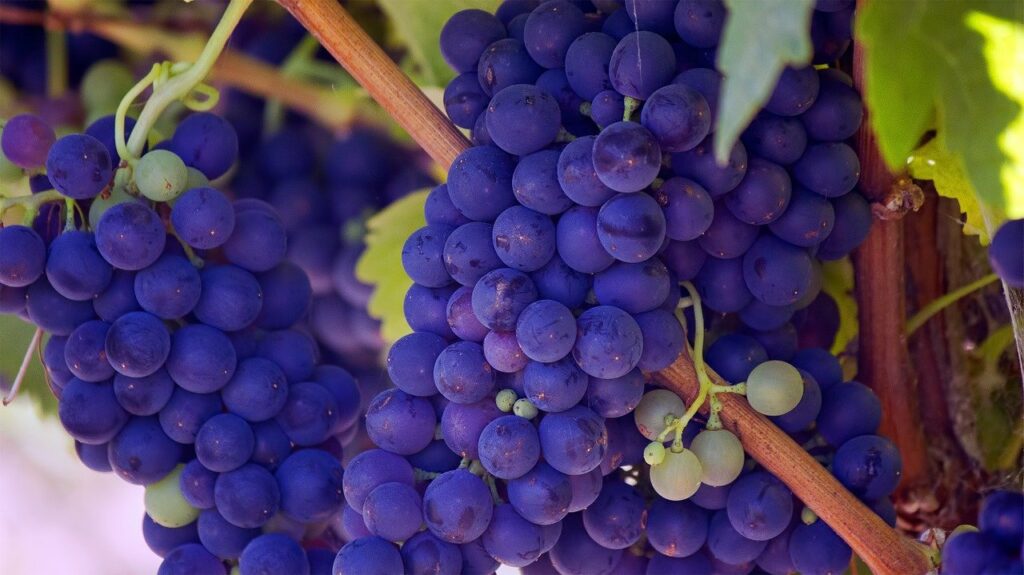Mediterranean vineyards are remarkably diverse, especially on the islands. Each island territory develops wines with a unique character. The combination of microclimates, traditions and specific grape varieties gives rise to exceptional Mediterranean viticulture.
If you're interested in wine-related articles, download our app for IOS or Android. It will give you access to our wine lexicon, our articles and our innovative solution, designed for all wine consumers and collectors.
The influence of island terroir on wines
The island terroir benefits from generous sunshine and refreshing sea breezes. These conditions regulate temperature and preserve grape acidity. Volcanic, limestone and schist soils enrich the aromatic profiles. In this Mediterranean vineyard, the sea plays an essential role in limiting temperature variations.
Native grape varieties of the Mediterranean islands

Island grape varieties are often endemic and adapted to local conditions. In Corsica, Niellucciu produces robust reds. In Sardinia, Vermentino produces fresh, aromatic whites. In the Cyclades, Assyrtiko is grown on volcanic soils. These varieties contribute to the strong identity of Mediterranean viticulture.
Mediterranean viticulture in an island climate
Mediterranean viticulture on the islands has to cope with hot, dry summers. Winegrowers adjust their practices to preserve the balance. Harvesting often takes place early in the morning to preserve freshness. The island terroir also demands rigorous water management.
Growing techniques adapted to the islands
On some islands, the vines are basket-pruned to resist the wind. This method protects the bunches and conserves moisture. In Mediterranean vineyards, soils are often worked to limit evaporation. Island grape varieties are chosen for their resistance to drought.
The importance of local winemaking traditions
Each island has its own winemaking methods. In Sicily, prolonged maceration produces powerful reds. In Crete, terracotta amphorae perpetuate ancestral know-how. The island's terroir and local culture shape the character of its wines.
The emblematic white wines of the Mediterranean vineyards

Island grape varieties produce whites marked by minerality and freshness. Corsican Vermentino seduces with its citrus notes. Greek Assyrtiko offers a balanced acid structure. These wines reflect the purity of the island terroir and go perfectly with seafood.
Intense reds from island grape varieties
Mediterranean vineyards also produce reds with complex aromas. Cannonau from Sardinia is distinguished by its richness and supple tannins. Corsican Niellucciu expresses spicy, floral notes. These wines are ideal with typical Mediterranean dishes.
The challenges of insular Mediterranean viticulture
The islands are sometimes subject to extreme conditions, such as violent winds or prolonged drought. Winemakers innovate to protect their vines. The choice of island grape varieties adapted to the island terroir remains essential. These efforts ensure the long-term future of Mediterranean vineyards in the face of climate change.
The role of tourism in promoting island wines
Wine tourism helps to promote the wines of the Mediterranean vineyards. Visitors discover the wineries and taste the wines on site. Island grape varieties gain in notoriety thanks to these experiences. Mediterranean viticulture thus benefits from an international showcase.
A unique and well-preserved winegrowing identity
The island terroir and the diversity of island grape varieties offer a rare aromatic palette. Mediterranean island viticulture combines tradition and innovation. The Mediterranean vineyards of the islands continue to seduce lovers of authentic wines.
If you enjoyed this article, please feel free to read the following article "Large-format wine bottles: more profitable on resale?"which may also be of interest to you!





